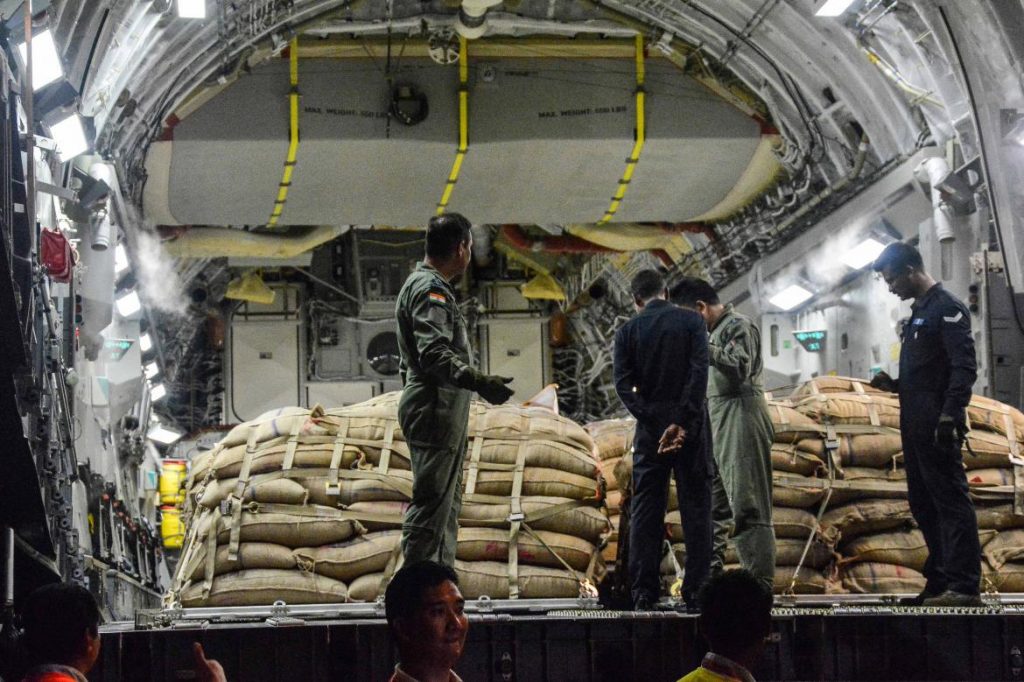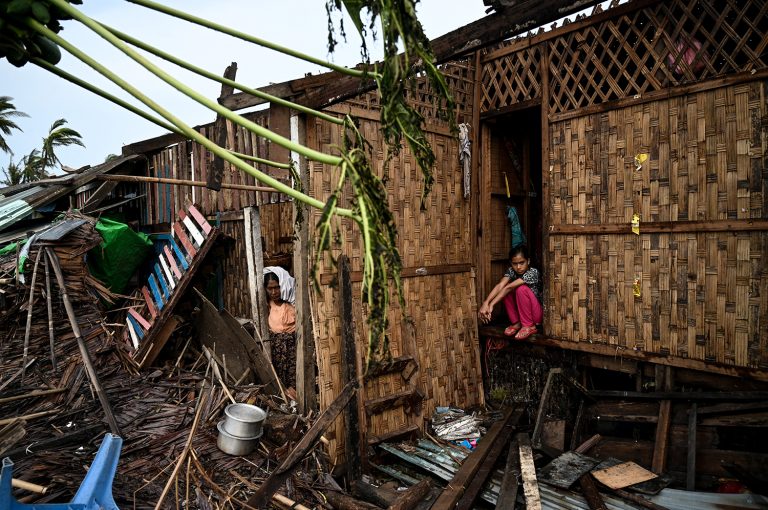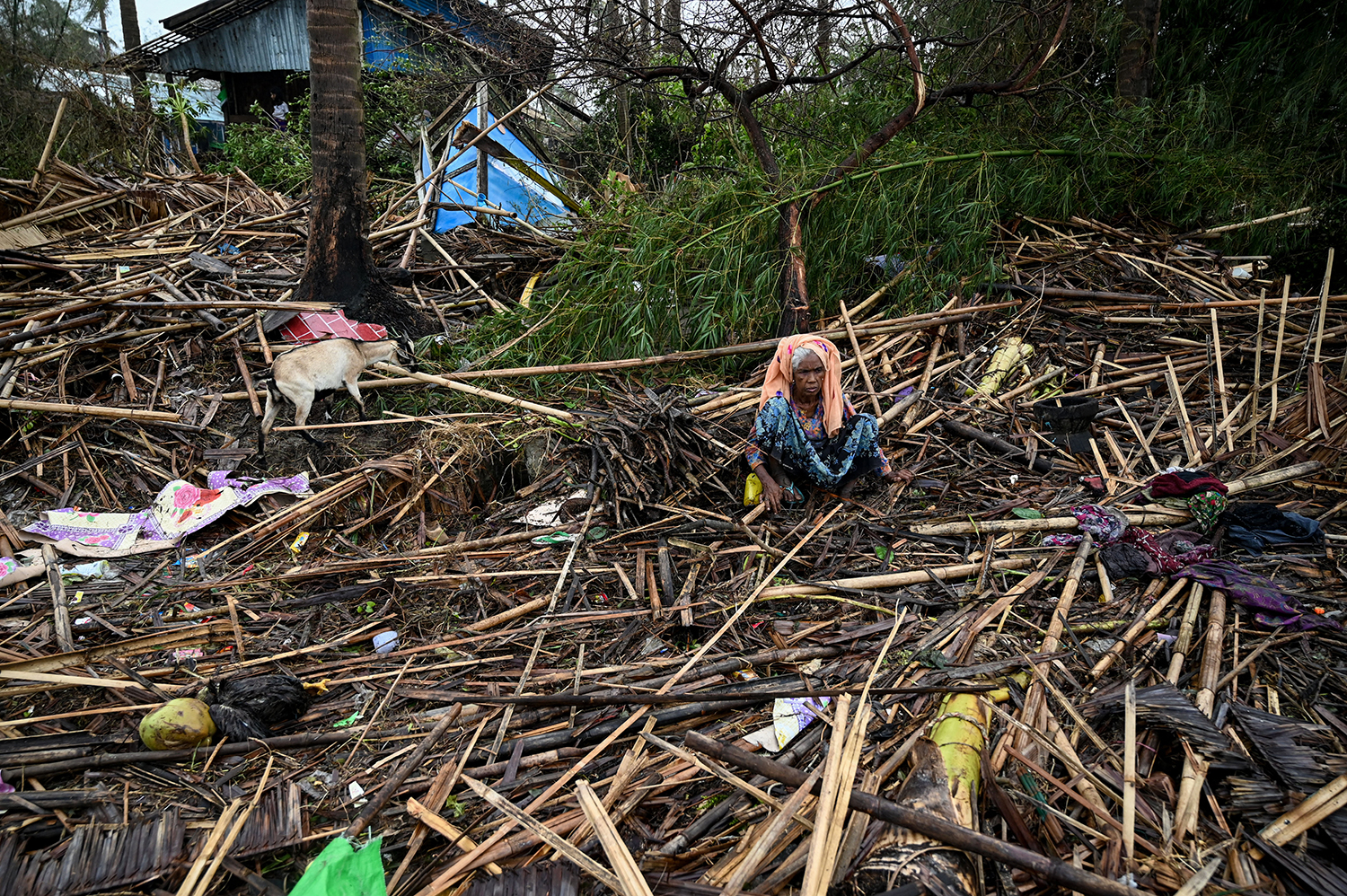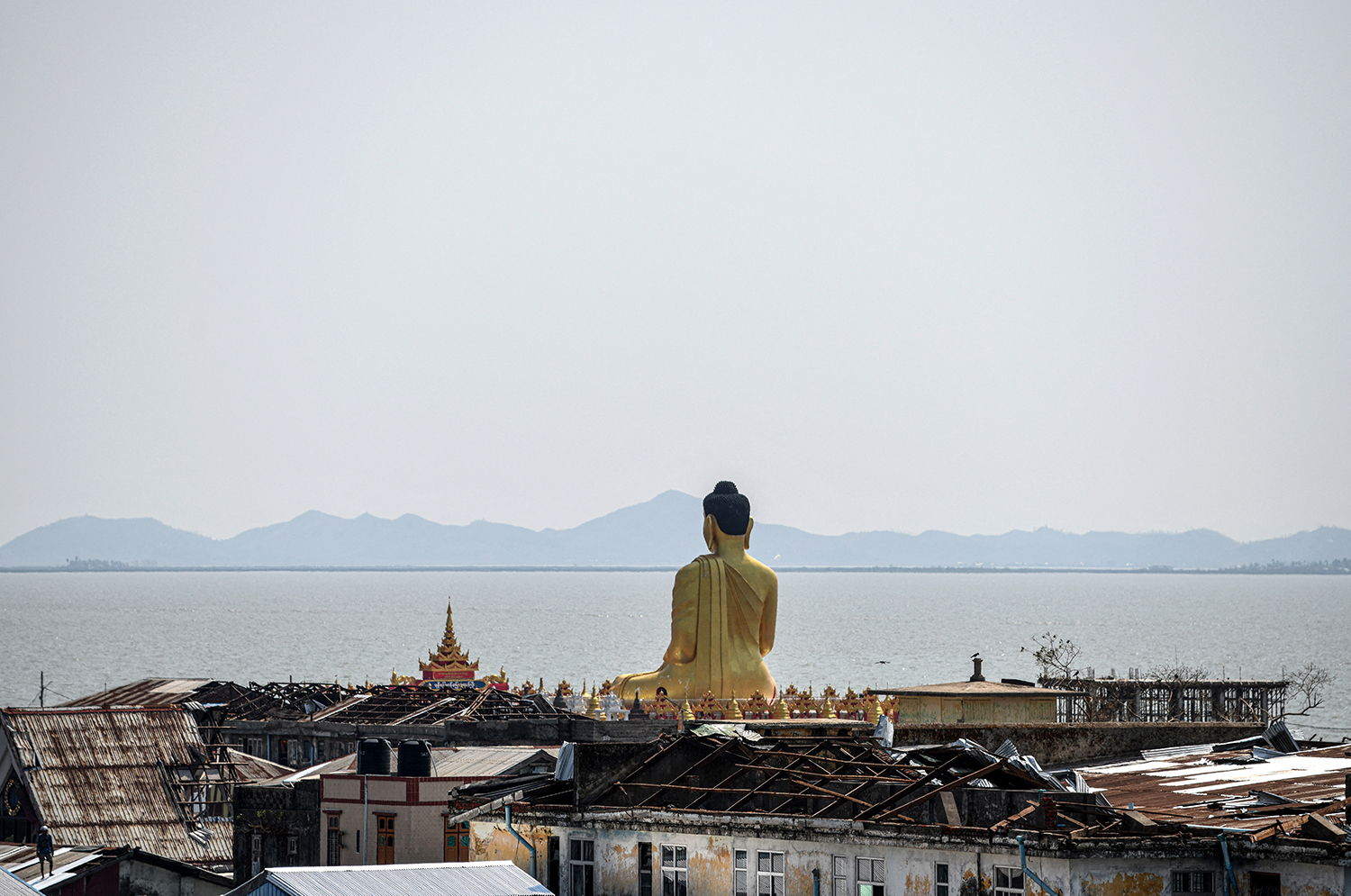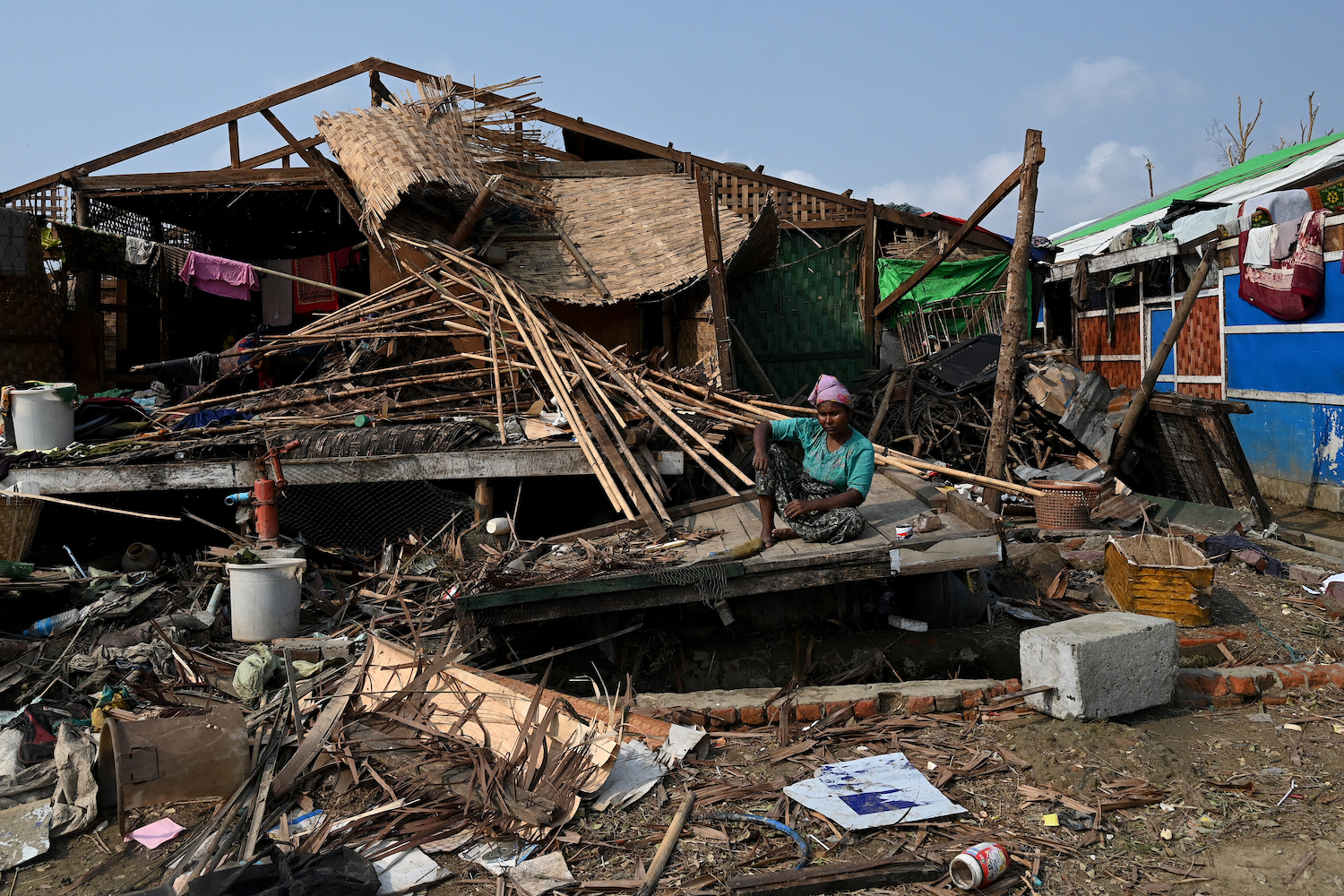Myanmar NGOs say their local knowledge is justification for having a bigger say in decisions on humanitarian aid and development and a bigger share of funding.
By JAKOB KREMBZOW | FRONTIER
OVERFLOWING waterways created havoc in much of the country in recent weeks and although the flooding was not as serious as last year, Myanmar NGOs were quick to respond, supplementing government relief efforts by distributing emergency humanitarian aid.
Daw Pansy Tun Thein of the Local Resource Centre, a network of civil society organisations, estimates there are about 10,000 such groups throughout the country. Many are small and have chosen not to register, making it difficult to know the exact number.
The LRC, a vivid example of a Myanmar NGO, has connections with 600 member CSOs and interacts with another 20 networks. It was founded in the aftermath of Cyclone Nargis, one of Myanmar’s worst natural disasters, which slammed into the Ayeyarwady Delta in May 2008, leaving about 140,000 people dead or missing.
There was a desperate need for help but the military government initially refused offers of humanitarian aid from international organisations. Ordinary citizens responded to the situation by spontaneously organising relief operations for cyclone survivors. The effectiveness of the community response was an empowering experience for many of those involved and it resulted in an increase in the number of Myanmar NGOs.
Support more independent journalism like this. Sign up to be a Frontier member.
The LRC at first focused on providing emergency aid to victims of natural catastrophes and man-made situations, such as civil conflict, before gradually expanding its activities. Its member CSOs are involved in development issues, human rights advocacy and legal reform.
The LRC’s activities are spread throughout the nation and are diverse. They include helping women and children who have suffered sexual violence to take legal action against their attackers and assisting farmers to legally assert their claims in land-grab cases. It is helping those affected by the flooding: every weekend groups of volunteers distribute rice, water and cash to those in need.
Another NGO formed after Nargis is Paung Ku, that roughly translates as “bridge”. It also defines itself as a network and is trying to connect a broad range of civil society actors to empower them to reach their goals. Its activities range from cooperating with Thai NGOs on human rights concerns at the Dawei Special Economic Zone project to providing support to people displaced by civil conflict. It was also involved in the protest movement in 2011 that resulted in the suspension of work on the Myitsone Dam.
In the latest flood emergency, it has cooperated with groups such as the Mandalay Community Center and the Yangon Parahita Youth Network to distribute food and drinking water to victims.
In the Myanmar NGO community, capacity and self-esteem have risen sharply because of their active involvement in providing humanitarian aid.
“We learned, since the time of Nargis, that in times of emergency and disaster it is the locals who are best placed to respond,” said Pansy Tun Thein. The increasing involvement of Myanmar groups in aid and development has enabled them to renegotiate their relationships with international NGOs and aid agencies.
Myanmar NGOs say they have the best understanding of the local context and can respond the quickest, but they sometimes lack funding, an issue over which the international community has been criticised. Although the big contribution of local NGOs in emergency situations is widely recognised, figures released by the United Nations earlier this year showed that developing country NGOs received only 0.2 percent of international humanitarian assistance.
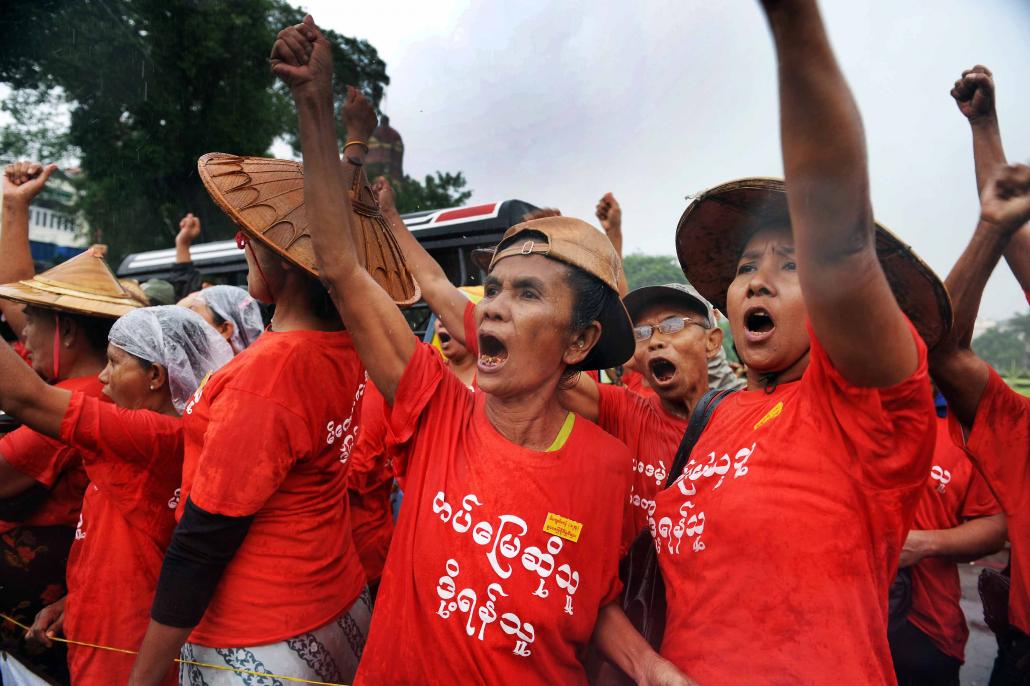
Farmers protest in downtown Yangon against land seizures by the government. (Steve Tickner / Frontier)
Ko Kyaw Thu of Paung Ku also argues that Myanmar civil society does not have greater participation in decision-making about aid and development and demands that it has a bigger role.
A Paung Ku report said that although many INGOs work with Myanmar NGOs the relationships do not constitute partnerships. Kyaw Thu said the relationships could be described as sub-branding. Myanmar groups have no part in decision-making and act only as operators on the ground.
Kyaw Thu said the greater involvement of Myanmar NGOs in the planning process had the potential to create home-gown innovations for the humanitarian aid issues they identified and result in more sustainable solutions.
Such criticisms have generated discussion among many INGOs over an issue known in the aid community as localisation.
Mr Paul Joicey, the country director of Oxfam, says many INGOs are willing to tackle the issue.
Referring to the debate over localisation and the efficiency of providing humanitarian aid, he said the involvement of Myanmar NGOs in funding and decision-making should be both welcomed and encouraged by INGOS.
In a report released in July 2015, Oxfam said an ideal international humanitarian aid system would be markedly different from the prevailing situation. The report, ‘Turning the humanitarian system on its head’, said the ideal scenario would have governments and national CSOs at the centre, with the international community as external supporters.
A coalition of INGOs, including Oxfam, and major donor countries took action to address the funding issue at the World Humanitarian Summit in Istanbul in May. Coalition members signed a Charter for Change that commits them to a goal of providing 20 percent of their funding to national NGOs by May 2018.
The charter also binds them to principles of partnership, decision-making as equals and a commitment not to undermine the capacity of NGOs by appropriating their staff during humanitarian emergencies.
Daw Seng Raw of the Metta Foundation was a member of the Myanmar delegation at the summit, where she was among those lobbying for localisation. Seng Raw urged the international community to trust local NGOs and not to hinder direct funding because of doubts over accountability. She said the commitments made at the summit should be followed by an action plan that identified more specific targets.
The UN Office for the Coordination of Humanitarian Aid is backing the demands of developing country NGOs for localisation and local leadership. Mr Pierre Peron at OCHA’s Yangon office said the agency would try to use its role as a coordinator to ensure that the demands of Myanmar NGOs were heard and to design funding systems that were accessible to local groups.
The localisation of humanitarian aid and the degree to which local NGOs are included in planning are issues that are sure to remain on the agenda of the humanitarian community.
It remains to be seen if the two approaches, one led by an overall aim of efficiency and the other by a focus on local empowerment, will continue to push the agenda in the same direction, or if these differing goals will become conflicted and lead to disharmony.


